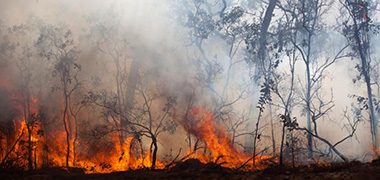
Courses in renewable energy
Diploma of Leadership and Management
- There are no mandated entry requirements.






Certificate IV in Building and Construction (Building)
- There are no mandated entry requirements.





Diploma of Building and Construction (Building)
- There are no mandated entry requirements.




Diploma of Project Management
- There are no mandated entry requirements.




Bachelor of Science (Mechanical Engineering)
- There are no mandated entry requirements.
 Engineering Institute of Technology
Engineering Institute of Technology
Doctor of Engineering
- There are no mandated entry requirements.
 Engineering Institute of Technology
Engineering Institute of Technology
Advanced Diploma of Electrical and Instrumentation (E&I) Engineering for Oil and Gas Facilities
- There are no mandated entry requirements.
 Engineering Institute of Technology
Engineering Institute of Technology
Diploma of Building and Construction (Management)
- There are no mandated entry requirements.
 College for Adult Learning
College for Adult Learning
Graduate Certificate in Renewable Energy Technologies
- There are no mandated entry requirements.
 Engineering Institute of Technology
Engineering Institute of Technology
Professional Certificate of Competency in Battery Energy Storage and Applications
- There are no mandated entry requirements.
 Engineering Institute of Technology
Engineering Institute of Technology
Diploma of Horticulture Management
- There are no mandated entry requirements.
 Ironwood Institute
Ironwood Institute
Bachelor of Science (Industrial Automation Engineering)
- There are no mandated entry requirements.
 Engineering Institute of Technology
Engineering Institute of Technology
Graduate Certificate in Hydrogen Engineering and Management
- There are no mandated entry requirements.
 Engineering Institute of Technology
Engineering Institute of Technology
Professional Certificate of Competency in Renewable Energy Systems
- There are no mandated entry requirements.
 Engineering Institute of Technology
Engineering Institute of Technology
Professional Certificate of Competency in Hydrogen Powered Vehicles
- There are no mandated entry requirements.
 Engineering Institute of Technology
Engineering Institute of Technology
Professional Certificate of Competency in Carbon Capture
- There are no mandated entry requirements.
 Engineering Institute of Technology
Engineering Institute of Technology
Professional Certificate of Competency in Hydrogen Energy – Production, Delivery, Storage and Use
- There are no mandated entry requirements.
 Engineering Institute of Technology
Engineering Institute of Technology
Graduate Certificate in Water Resources Engineering
- There are no mandated entry requirements.
 Engineering Institute of Technology
Engineering Institute of Technology
Professional Certificate of Competency of Energy Storage
- There are no mandated entry requirements.
 Engineering Institute of Technology
Engineering Institute of Technology
Professional Certificate of Competency in Smart Grids
- There are no mandated entry requirements.
 Engineering Institute of Technology
Engineering Institute of Technology


